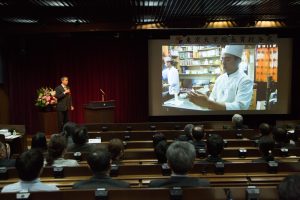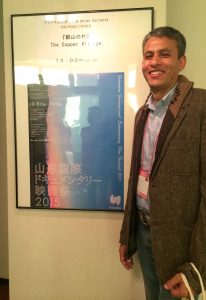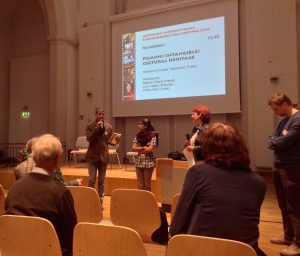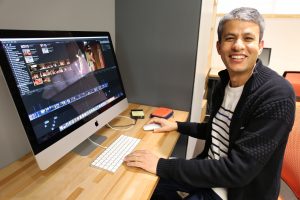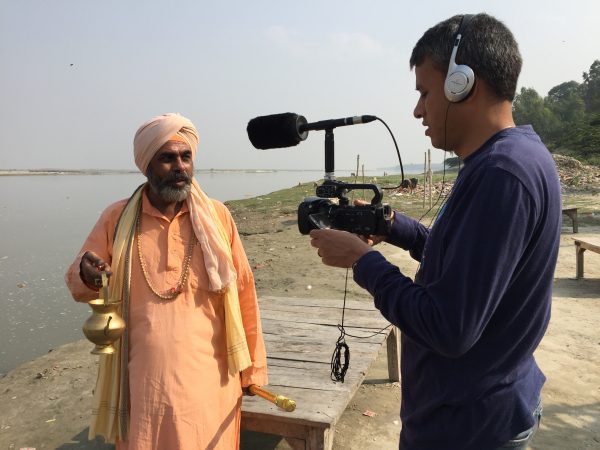
May 17, 2018
研究と社会をつなぐ映像制作: 総長賞 受賞者 ディペシュ・カレル さんインタビューLinking Academia and Society through Film: An Interview with Dipesh Kharel, receiver of the President's Award
学際情報学府アジア情報社会コースで博士号を取得し、現在情報学環客員研究員を務めるDipesh Kharel(ディペシュ・カレル)さんは、先日映像制作を用いた研究で東京大学総長賞を受賞しました。ディペシュさんに、映像を研究に取り入れる理由と学府での研究の体験について伺いました。
ディペシュさんは「映像人類学者」(visual anthropologist)として、写真や映像などの視覚資料の持つ2つの役割について話しました。ひとつは自分の現地調査の記録、そしてもうひとつには、学術の世界以外で一般の人々の目に触れることによって、そこに映し出された人々や社会についての関心を集めることです。彼が製作した日本でのネパール移民を主題としたドキュメンタリー映画は、現在までに60以上のインターナショナルな映画祭や教育機関で上映され、百万人以上の観客を得ています。移民を対象として撮影を進めることの大変さは、複数の国やまちを駆け回って対象を追跡しなければならないこと。また、それぞれの対象者、コミュニティとの信頼関係を築くためにとても長い時間が必要であることです。けれども調査結果をもっと広く知ってもらいたい一心で、ディペシュさんは現在も精力的にカメラとともに世界を飛びまわっています。
学府と学環での経験について、教員からの専門的な指導と多様な背景を持つ学生がいることは魅力的だと述べました。また、メディアスタジオを頻繁に活用し、機材などのサポートを得られることの重要性についてもふれました。現在、インドのプロジェクトが編集の最終段階に入り、最新作では日本に暮らすベトナム人学生グループの生活に迫ります。
記事:潘夢斐(博士課程)
写真提供:ディペシュ・カレル
Having graduated from the ITASIA doctoral course and currently working as a visiting researcher at GSII, Dipesh Kharel recently received the President’s Award of the University of Tokyo for his research activities incorporating film production. The editorial team interviewed him about his reasons for the adoption of filming as a research method and his experiences at GSII.
Identifying himself as a “visual anthropologist”, Dipesh said that visual materials including films and photographs function as both records of his field studies and powerful media that attract attention from the general public in addition to the academic world. Screened at sixty international film festivals and several education institutions, his documentary film featuring Nepali migration to Japan has been viewed by millions. Although the filming process is painstaking, involving tremendous time invested in tracing the migrations at multiple sites and building trust, Dipesh said he was willing to travel all over the world with his camera in order to present his research results to a wider audience.
In regards to his study and research experience at GSII, he expressed his appreciation for the professors’ supervision and found the diverse background of the students appealing. He also said he owed a great deal to the facilities available at the Media Studio, of which he was a frequent user. Currently he is finishing the final editorial part of a project in India and starting a new one featuring Vietnamese students in Japan.
Text: Mengfei Pan (PhD student)
Proofreading: David Buist (Project senior specialist)
Photos provided by Dipesh Kharel


